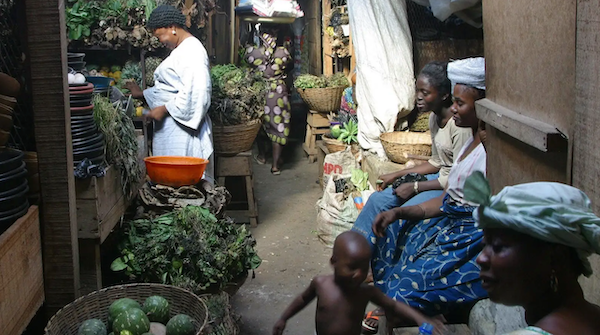The federal government said on Thursday that 80 percent of Nigerians use traditional medicine as their primary form of health care.
The Minister of State for Health and Social Protection, Dr. Tunji Alausa, disclosed this in Abuja during the commemoration of the 2023 African Traditional Medicine Day, themed “The Contribution of Traditional Medicine to the holistic health and well-being of all.”
Alausa, who was represented by the Director of Human Resource Management at the Federal Ministry of Health and Social Welfare, Hassan Salau, said traditional medicine was accessible, culturally acceptable and enjoyed the trust of many of people.
He said: “It is on record that Nigeria has been celebrating ATM Day for two decades with activities to raise awareness and promote the proper use and practice of traditional medicine in the country. While approximately 80 percent of the rural population uses traditional medicine as their primary form of health care, traditional medicine has made an invaluable contribution to the health and well-being of all.
“This year’s theme encapsulates the essence of our commitment to recognizing and harnessing the rich heritage of traditional African medicine. Today, as we celebrate this celebration, we must recognize the role of traditional medicine in our lives and its connection to our holistic health and well-being.
“Studies have shown that the use of traditional medicine in Nigeria is as high as 81.6 percent, and this figure is not expected to decrease in the near future, especially in the face of the expected increase in global burden of disease. »
Alausa noted that President Bola Tinubu’s agenda will strengthen the economy by prioritizing universal health coverage, which will address the country’s health challenges.
“The health care plan will also aim to encourage and improve funding for local research into new drugs and vaccines. It is a well-established fact that many medicines have their origins in herbal medicine which is a form of traditional medicine.
“Our approach to optimizing the strengths of our traditional medicine will also focus on enabling policies, institutional and political support, our rich biodiversity, qualitative data, scientific research and the use of innovation to optimize the contribution of traditional medicine. traditional medicine to CSU and sustainable development. , and will also be guided by respect for our indigenous resources and intellectual property rights,” he added.
He said if the bill to establish the Traditional, Complementary and Alternative Medicine Council of Nigeria was passed into law, it would regulate the affairs of the council in the country.
In her message, World Health Organization Regional Director for Africa, Dr Matshidiso Moeti, said the potential of traditional medicine, in terms of research, local manufacturing and commercialization, remains untapped.
His message, read by the WHO Representative to Nigeria, Dr. Walter Mulombo, noted that Member States must intensify their efforts to implement evidence-based traditional medicine approaches to achieve the goals of sustainable development linked to health and to promote the health and well-being of populations. all this at any age.
She urged Member States to apply local knowledge, science, technology and innovation to unlock the contribution of traditional medicine to the advancement of planetary health and people’s well-being.
“Establish a high-level consultative mechanism with indigenous knowledge holders to ensure their full participation and consultation in the adoption and implementation of relevant policies and actions associated with biodiversity management and traditional knowledge.
“Facilitate the effective integration of traditional medicine into national health systems, thereby contributing to the achievement of universal health coverage and all health-related Sustainable Development Goals.”
“Where appropriate, member states should redefine health laws, policies and services to enable holistic and relevant decisions, transparent choices with a transformative focus on prevention, maintenance and primary health care,” a she added.
